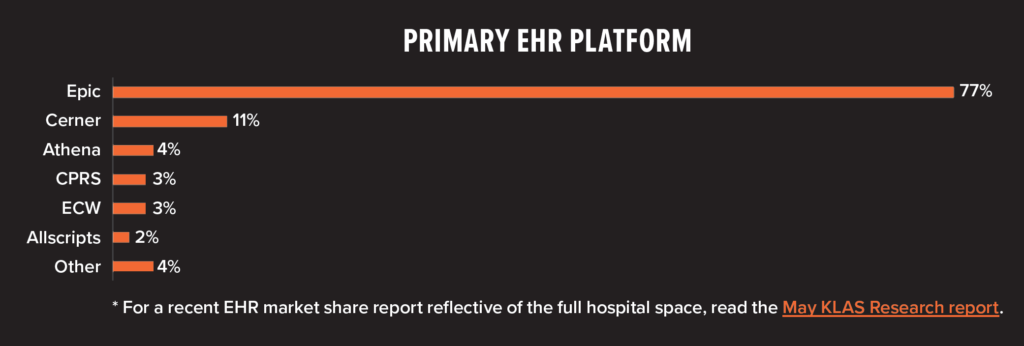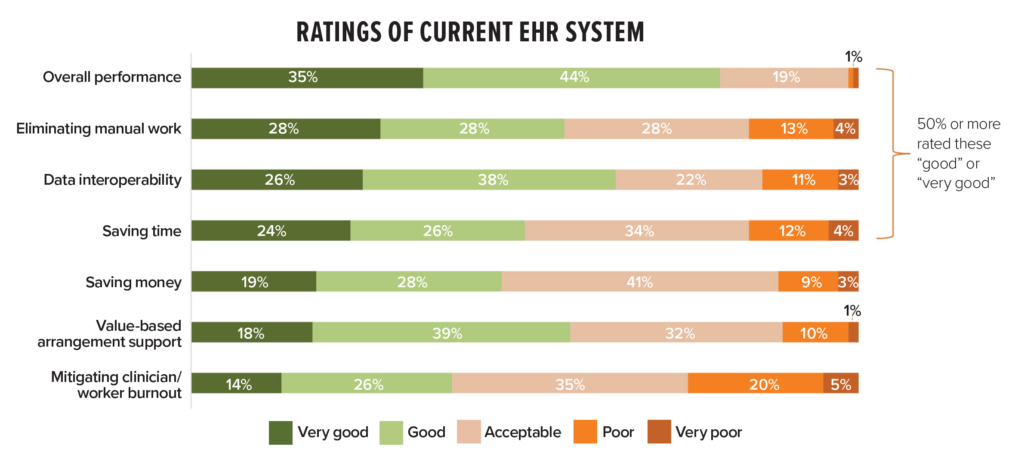Intelligent Automation in Healthcare: What Motivates Investments in the Next Generation of EHR Integrations
In an era of evolving technology and limited staffing resources, the question of automating or optimizing workflows to reduce repetitive work within medical practices is a matter of “how” and when.”
Healthcare leaders feeling the pressures of a competitive labor market and stagnant reimbursement rates report they are not prepared to make a switch to a new EHR or practice management (PM) system in the coming years, but they do find value in the elimination of manual work when they invest in new platforms to save operational costs.
Laserfiche, the leading SaaS provider of enterprise content management and business process automation, partnered with Medical Group Management Association (MGMA), in 2023 to better understand the opportunities and challenges for medical practice leaders in evaluating their platforms for workflow, electronic forms, document and records management and more.
In May 2023, Laserfiche and MGMA surveyed medical practice administrators, physicians, billing and coding leaders and health information technology (HIT) workers for their views on EHR and PM systems, business automation and more to understand:
- What is their current level of satisfaction with these systems?
- What improvements are these healthcare leaders looking for in new platforms?
- What are their priorities when looking to invest in new platforms or integrations?
Three big Ws: who, what and where
To understand the survey respondents’ overall satisfaction and willingness to embrace new platforms or integrations, we must start by assessing their current systems:

- More than three-quarters (77%) of respondents reported that Epic is their primary EHR platform, with another 15% on Cerner or Athenahealth, about 8% on CPRS, eCW or Allscripts, and another 4% who responded “other.”
- More than eight in 10 (82%) respondents come from large organizations of more than 100 full-time-equivalent physicians.
- Hospitals or university hospitals made up the largest share of respondents by organization type (43%), followed by integrated health/delivery systems (24%) and medical group practices (23%), with the remaining 11% comprised of other academic medical settings, federally qualified health centers (FQHCs), rural health clinics (RHCs) or “other.”
Rating current platform performance: a mixed bag
Almost four-fifths (79%) of surveyed healthcare professionals gave their current EHR system a “very good” or “good” rating on overall performance, though no single attribute of their EHR system rated as highly as that broad assessment:

- Data interoperability (64%) and value-based arrangement support (57%) were the top two specific ratings for “very good”/“good” performance behind the overall performance rating.
- When rated for ability to eliminate manual work, the “very good”/“good” rating falls by more than 20 percentage points to 56%.
- “Very good”/“good” ratings were even lower for attributes such as “saving time” (50%), saving money (47%), and mitigating clinician/worker burnout (40%).
Want to learn more?
Download the whitepaper, “Intelligent Automation in Healthcare — What Motivates Investments in the Next Generation of EHR Integrations.”

